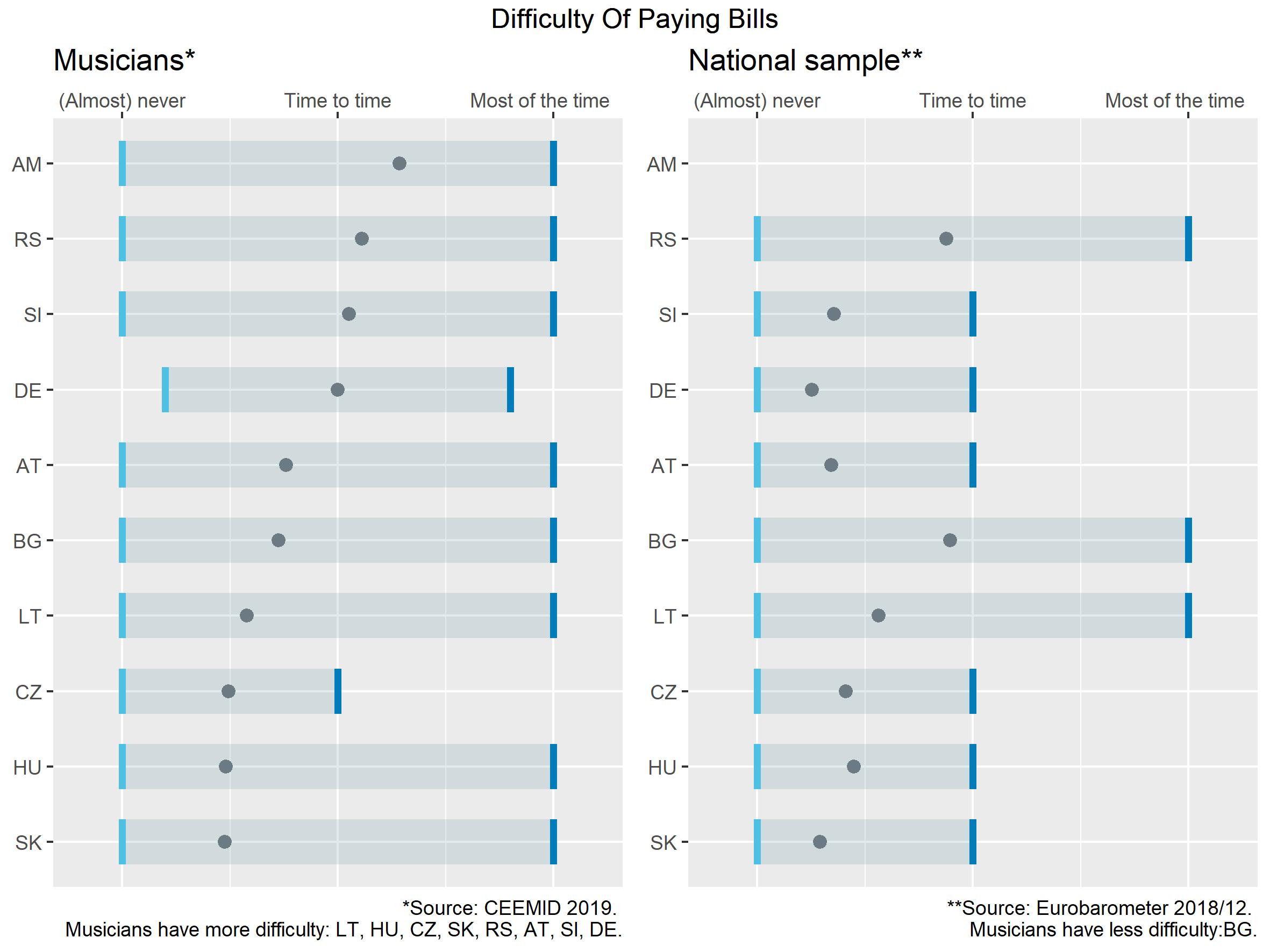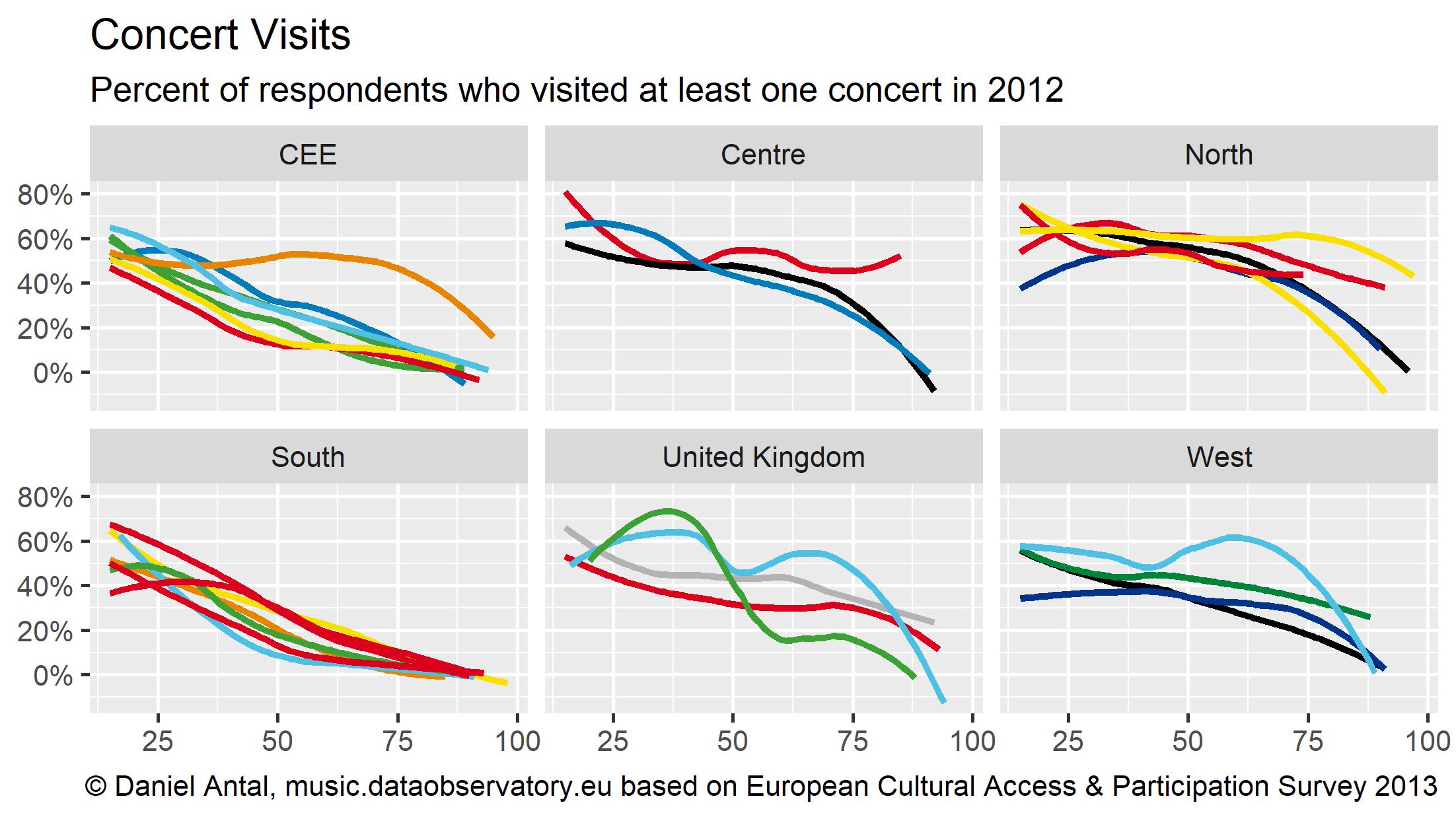What is Survey Harmonization?
Create more useable, cheaper, and better-quality questionnaire-based research
Survey harmonization is a powerful research tool to increase the usability of questionnaire-based empirical research. When the same questions are asked from similarly selected German and French people, music audiences and musicians, then we can make meaningful comparisons between the public opinions of the two countries, or the different perceptions of fans and makers of music. And if we repeat this procedure time after time, we can see if opinion is shifting more in Germany or France, or the living conditions of musicians are catching up with the rest of the country population.

The Digital Music Observatory and its predecessor, CEEMID, has been working with harmonized surveys for 8 years. We have compiled the biggest database of interview transcripts with concert audiences (more than 70,000 interviews in all European countries, soon to be extended to more than 100k) and the world’s biggest harmonized survey dataset about music creators (4000 responses from 12 European countries.) We use the Open Data Directive, originally for government-funded research data, recently extended to taxpayer funded scientific research, to access datasets that are invisible for the music industry.

You can create better surveys with less cost: you only need to ask the information, or change of information, that is not included in our harmonized datasets. Shorter, better questionnaires, smaller samples sizes, huge cost savings.
When you make questionnaire-based research, you immediately get a history (the same question asked years ago) and an international comparison (the same question asked in other countries.)
Often you do not even have to pay for the survey, because somebody else has already made a similar taxpayer funded research and we can just get the data for you. Harmonizing surveys requires advanced data science and statistics knowledge, which is what we provide with the scientific partners of the Digital Music Observatory. We have developed an open-source software, free to use, for this purpose. It is not for the faint heart – but users of our observatory can just leave their data for us and let us run the code.